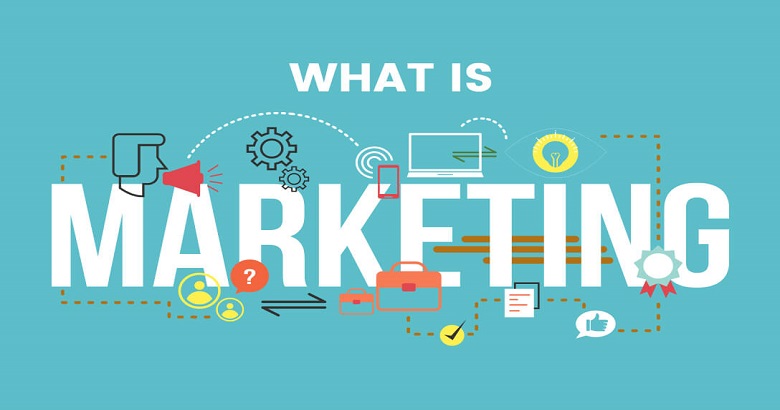There’s no question that most authors dislike marketing with a passion. They would instead focus on writing rather than promoting their works. After all, they argue, you’re a writer, not a marketer, right?
If you share this attitude, how likely are you to achieve success? Is it possible to focus on writing and still make a living from your books?
The Hard Truth About Self-Publishing
Let’s address the tales of authors who seemingly emerged from obscurity with one or two books and skyrocketed to success. While these stories are undeniably motivational, they are exceptions, not the rule. The hard truth is that replicating such success is highly improbable.
Instead of fixating on these outliers, consider authors who, like you, started with nothing but a dream of becoming full-time authors within a reasonable timeframe. The common denominator among these authors is not a massive marketing budget but pure consistency and perseverance. Success in self-publishing, including author marketing services, is often built through repetitive actions, refining skills, and gaining momentum over time. The journey might differ for each writer, but the underlying principle remains – keep tweaking until you find what works for you.
Two Types of Marketing and Their Roles
 Achieving success in self-publishing without acquiring author marketing services is a pipe dream. However, it doesn’t mean you have to transform into a full-time marketer. Marketing activities can be divided into two groups – passive and active.
Achieving success in self-publishing without acquiring author marketing services is a pipe dream. However, it doesn’t mean you have to transform into a full-time marketer. Marketing activities can be divided into two groups – passive and active.
-
Passive Marketing:
Passive marketing involves activities related to your book, garnering sales without consuming much of your time. This includes market research, creating a quality product, designing a professional cover, writing compelling sales copy, and building your brand.
The foundation of your marketing lies in passive activities. If your product (book) is subpar, no amount of active marketing will propel you to bestseller status. It’s about creating a valuable and enticing product that attracts readers.
-
Active Marketing:
On the other hand, active marketing encompasses efforts that directly involve selling your book. This includes writing guest posts, giving interviews, utilizing social media, book tours, and various self-promotional activities. While active marketing can enhance your results, it relies heavily on the support of a strong passive marketing foundation.
To thrive without extensive active marketing, three essential requisites must be fulfilled:
- Releasing New Books Often: Releasing books consistently is the linchpin of self-publishing success. Look at the most successful independent authors – they maintain catalogs of 10+ books released consistently every few months. Your income is likely to decrease each month without a new release. The more you release, the higher your chances of success.
- Writing in Series or Sticking to a Specific Niche: Engaging readers with a series ensures higher chances of repeat purchases. For non-fiction authors, ensuring that all your books are related can lead to increased repeat buyers. This strategy doubles or triples your average transaction value.
- Writing in a Popular Genre or Niche: Choosing a hot, popular genre like romance increases your chances of success. Readers in popular genres are often open to exploring new authors, making it easier to gain initial traction. Non-fiction authors should focus on solving widespread problems to tap into a larger audience.
An additional consideration, especially for fiction authors pricing their works at $2.99, is enrolling in KDP Select. While not necessary for non-fiction, it can expedite building a readership by making books available for borrowing.
The Most Critical Strategy for Time-Poor and Money-Poor Authors
If there’s one type of marketing you cannot afford to overlook, it’s email marketing. Building an email list is the cornerstone of your author’s business. It requires minimal time and money to set up, making it ideal for authors with limited resources.
Three essential techniques for effective email marketing:
- Create a Great Lead Magnet: A compelling freebie that entices readers to join your list is crucial. A valuable lead magnet can significantly boost your conversion rate. This could be a short story or a full-length novel for fiction authors.
- Make it Easy to Join Your List: Utilize reputable email marketing services like AWeber or Mailchimp to ensure a seamless signup process. Opt for professional tools like LeadPages for effective opt-in pages. Mention your list in your book and make joining easy.
- Treat Your Subscribers Like Royalty: Provide value to your subscribers beyond book releases. Engage with them through exciting emails, offer free copies for reviews, and conduct giveaways. Building a relationship is critical to the effectiveness of email marketing.
Email marketing is not a magical solution, but it’s a powerful tool that, over time, can lead to a dedicated readership.
What Marketing Activities You Can Do Ignore?
 Dispelling common myths about essential marketing activities, here are three self-promotional endeavors you can ignore:
Dispelling common myths about essential marketing activities, here are three self-promotional endeavors you can ignore:
- Social Media: Social media, while potentially helpful, is not essential for success. It can be time-consuming with limited reach. Focus on the most direct and clutter-free place – your readers’ inbox.
- Guest Posting: While influential blog posts can boost non-fiction book sales, the time investment often outweighs the results. Consider alternative methods like book promo sites for a more efficient approach.
- Podcasts and Interviews: While they can be a part of your marketing efforts, the time spent on podcasts and interviews might not yield significant results. Directly communicating with your email list often proves more effective.
The Power of Word of Mouth – Selling Without the Hard Sell
Now, let’s delve into the magic of word of mouth – the art of selling without the hard sell.
One might wonder, “How can I make sales when no one knows about me?” The answer lies in the distribution systems provided by major retailers like Amazon. These platforms grant access to a vast pool of potential readers, offering an opportunity for organic sales.
Word of mouth has never been more influential. A single satisfied reader can become your most effective marketing tool in today’s interconnected world. Whether they talk about your book to friends, post about it on social media, or even write a blog post, the quality of your product plays a pivotal role in determining its success.
In an era where everyone has a platform to endorse or critique a product, ensuring your work stands out positively is crucial. Readers can become your advocates, sharing their genuine enthusiasm for your book with others. Positive word of mouth attracts new readers and establishes trust – a priceless commodity in the competitive world of self-publishing.
Leveraging Organic Sales
The beauty of platforms like Amazon lies in their ability to kickstart organic sales. With a well-crafted book in a popular genre, you can attract at least a few organic sales without extensive self-promotion efforts or seeking author marketing services. The initial visibility gained from these sales becomes the foundation upon which you can build.
However, this doesn’t mean you should completely avoid promotional activities. It’s about finding the right balance and recognizing the role of organic growth in conjunction with your marketing efforts.
The Quality Quotient
While it’s tempting to believe that self-promotion is the key to success, the reality is that the quality of your product holds more weight. Writing a compelling, well-edited book that resonates with readers is the primary driver of positive word of mouth.
Consider your book as a product and your readers as customers. Happy customers are more likely to share their positive experiences, leading to more customers. On the flip side, a dissatisfied customer can have the opposite effect, thanks to the ease with which opinions spread in the digital age.
Dispelling the Self-Promotion Myth
While it’s true that strategic marketing campaigns can aid in launching a book as a bestseller, it’s equally true that dedicating time to perfecting your craft can yield similar, if not superior, results. Accumulating positive word of mouth over time can be a powerful force.
The self-promotion myth often revolves around the idea that continuous hard sales are necessary for success. On the contrary, balancing writing excellent books and fostering a genuine connection with your readers can be more effective in the long run.
The Untapped Potential of Email Marketing
Returning to our crucial tool – email marketing – it’s essential to recognize its potential in nurturing relationships with readers. Beyond notifying subscribers of new releases, a well-crafted email sequence can provide value, share insights, and turn casual readers into loyal fans.
Imagine receiving a sequence of brief, interesting emails, occasional free book offers, and exciting giveaways. Such efforts contribute to building a community of engaged readers who anticipate your new releases and actively participate in your literary journey.
Conclusion: A Balanced Approach
In conclusion, aspiring authors can indeed sell books without incessant self-promotion. By focusing on the fundamentals of consistency, passive marketing, and the art of word of mouth, you pave the way for sustainable success.
Embrace the truth that quality surpasses quantity. Write compelling stories or create content that leaves a lasting impression—leverage email marketing to build a community of readers who appreciate your work and actively champion it.
While active marketing has its merits, it should complement, not overshadow, the core essence of your craft. Finding the right balance between creating exceptional books and strategically promoting them allows you to flourish without succumbing to the pressure of seeking author marketing services or relentless self-promotion.
FAQ’s – Frequently Asked Questions
-
Can a book sell itself without any promotional efforts from the author?
While organic sales are possible, strategic marketing significantly boosts visibility. A balance of passive marketing (like a captivating cover) and selective active efforts enhances sales potential.
-
How does consistently releasing new books contribute to an author’s success in self-publishing?
Regular releases keep readers engaged, build momentum, and increase an author’s chances of long-term success. Each new book acts as another opportunity to attract and retain a growing audience.
-
Why is email marketing considered a crucial strategy for authors with limited time and resources?
Email marketing is efficient, requiring minimal time and cost. Building a subscriber list provides a direct line to readers, enhancing engagement and fostering a long-term relationship that can positively impact book sales.
-
Is it possible to build a successful writing career by focusing on a niche with a smaller market?
Success in smaller niches is attainable but may offer limited financial potential compared to more extensive genres. Authors must weigh the benefits of a dedicated audience against the challenges of a smaller market.
-
Should authors completely avoid using social media for book promotion, or is there a middle ground?
While social media can be beneficial, its effectiveness varies. Authors should assess the time invested against the returns. A strategic and minimal use of social media, coupled with other marketing efforts, may strike the right balance for each author’s unique goals.



